How to gain the trust of your prospects? – David Remaud (CMO @|banFirst) – Conquest #41
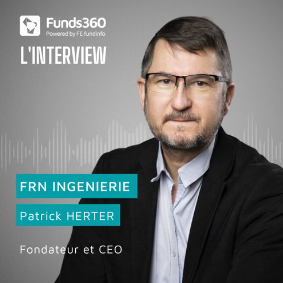
Funds360
Patrick Herter - We are witnessing a form of submission of the crypto market
Description of the episode
On January 10, 2024, the SEC (Securities and Exchange Commission) approved 11 spot bitcoin ETFs, issued by asset management giants like Blackrock and Fidelity. This is a major event in the history of cryptocurrencies. With Patrick HERTER, founder of FRN Ingénierie, we will see more clearly about this regulatory change, try to understand its scope and potential impacts on the crypto market and its ecosystem.
How to gain the trust of your prospects? – David Remaud (CMO @|banFirst) – Conquest #41

Conquest
How to gain the trust of your prospects? - David Remaud (CMO @|banFirst) - Conquest #41
Description of the episode
IbanFirst is a scale-up specializing in B2B money transfers. It has more than 350 employees, is present in 10 countries and manages more than 1,4 billion per month. Just that. This market, far from being easy to address, has large players and also requires creating a bond of trust with its customers. So, how did they manage to find a place in this market in less than 10 years? To understand their success, I invited David Remaud, CMO of the brand. He shares with us: - Their acquisition strategy - Their transition from Lead Gen to Demand Gen - Their expansion in Europe - Sales/Market relationships Don't forget to leave us your comments and impressions after listening! 🚀
#30 – Alternative investments, a good idea for 2024? – Olivier Herbout (Ramify)

My Piggy Bank
#30 - Alternative investments, a good idea for 2024? - Olivier Herbout (Ramify)
Description of the episode
Alternative investments – A tool that is taking up more and more space Who Olivier Herbout? An engineer by training with a degree from École Centrale Paris and a Masters in Financial Engineering from UC Berkley, Olivier Herbout was manager of the QIS (Quantitative Investment Strategy) division at Goldman Sachs in New York for 5 years. On his return to France in 2020 and alongside Samy Ouardini, he created the platform, an alternative to private banks. How Ramify works Ramify is an investment platform that offers wealth management services to individuals. A lack of supply, a lack of advice on the one hand and their knowledge and expertise in this field on the other, push Olivier and Samy to create this new solution. Ramify offers different alternative products but not only to improve the risk/return couple. Ramify are: - 2500 investors - 20% growth per month for 2 years - €100M invested What is an alternative product? An investment that falls outside the scope of listed stocks/bonds, it is viable if it creates value and/or if it presents diversification in the portfolio. An alternative product comes in opposition to the so-called traditional product. But what else are we talking about in this episode? Alexandre and Olivier talk: Art Private equity and private debt Augmented advisors and the humanization of services Emotional in investment Alternatives and children Tax exemption And you, what's the matter in your Olivier piggy bank? Want to know more about Olivier and Ramify?
Editorial Newsletter, Education & Community – Content Superstars #6 Saskia Fiszel (Virgil & Spoune) – Editorial Newsletter, Education & Community – Content Superstars #6
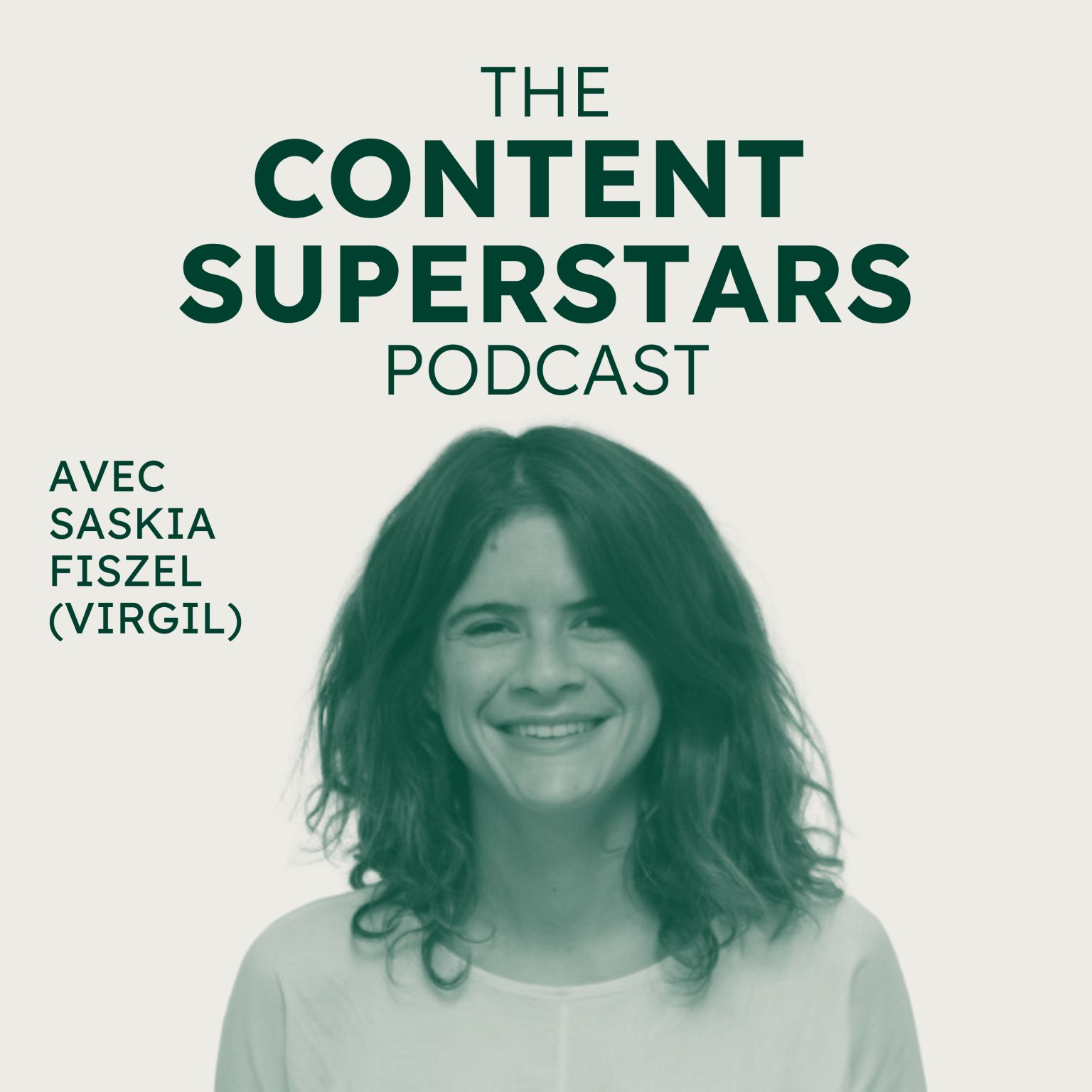
The Content Superstars Podcast
Editorial Newsletter, Education & Community - Content Superstars #6 Saskia Fiszel (Virgil & Spoune) - Editorial Newsletter, Education & Community - Content Superstars #6
Description of the episode
Podcast episode March 19 1 h 3 min Description of the episode She is the COO and founder of Virgil, but she is also the creator of Spoune, the newsletter to become “money smart”. I welcomed Saskia Fiszel to Content Superstars to talk about editorial newsletters, financial education and community. For years I have religiously read Spoune, Virgil's newsletter, a real estate co-financing solution allowing young professionals to buy their main residence. Quality editorial newsletters are rare, and even rarer are those that last. 4 years and 70.000 subscribers later, Spoune has a new edition every 2 weeks to decipher financial education. As a fan from the beginning, I wanted to ask Saskia (from Spoune) all the questions I always wanted to ask her. Result ? A comprehensive and informative episode that dissects the ingredients of a successful brand newsletter.
07. Younited – Data-driven lending during challenging times

Fintech Findings
07. Younited - Data-driven lending during challenging times
Description of the episode
Younited's François de Bodinat joins Jonathan Wildish, Product Solutions Lead (Lending) at Tink, to discuss why it's so important for lenders, in these challenging times, to prioritize affordability checks and data-driven consumer lending models. What to expect ? Insights from the product manager of Europe's leading instant credit provider How can lenders better support their customers in these difficult times? Lending forecasts for the next 5 to 10 years
#28 CSR: “It’s all in the FEC” | Jérôme Verdiell, abCSR [CSR Series]
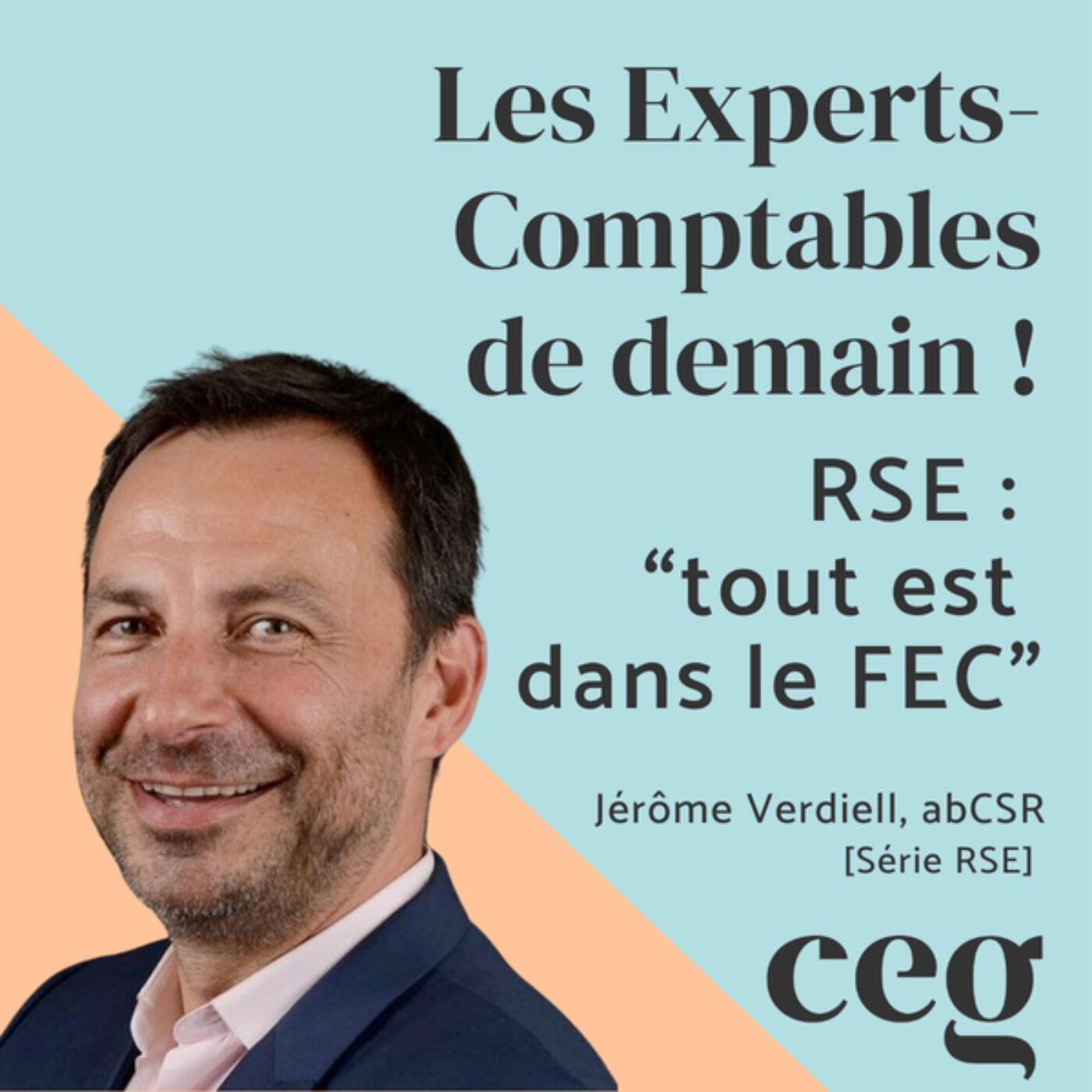
The Chartered Accountants of tomorrow!
#28 CSR: “It’s all in the FEC” | Jérôme Verdiell, abCSR [CSR Series]
Description of the episode
Welcome to this new episode of our CSR series. Today I am welcoming Jérôme Verdiell, founder of abCSR. VSEs-SMEs struggle to make time for CSR. But the reporting obligation will sooner or later end up falling on them! 😨 Hence the promise of abCSR: to transform accounting data (present in the FEC*) and social data (present in the DSN**) into concrete and communicative CSR indicators (example: sharing of value creation, exposure to supplier corruption, carbon footprint, etc.) With the tool, the accountant generates a simple extra-financial report for his VSE client in a very short time, with a few key indicators. 👉 Because yes: the solution is exclusively marketed by accountants, to their VSE-SME clients. With Jérôme, we talk: FEC and DSN: gold mines of data in terms of CSR. “It’s all in the FEC!” Calculation methods (“it’s not magic!”) Opportunities for new missions for firms Price lists and margins… And as Jérôme concludes: “Perhaps (…) the shift in the electronic invoice will help us capture a little of this time for the firms to take up the subject” 🤞. Good listening !
#11 Revolutionizing B2B payment – Faysal Oudmine – CEO of Fintecture
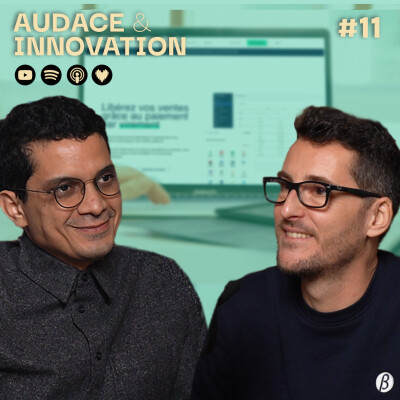
Audacity & Innovation: from dream to reality
#11 Revolutionizing B2B payment - Faysal Oudmine - CEO of Fintecture
Description of the episode
Faysal arrived in France at the age of 18, he did not speak French, 2 years later he joined HEC Paris. After leaving school, Faysal worked at Lehman Brothers during the bankruptcy, then decided to turn to entrepreneurship, returning to Morocco. He founded several companies before returning to France in 2016 to start Fintecture. Today Fintecture is the benchmark payment solution in B2B, more than 2,5 billion euros of transactions are recorded on the solution per year. The company raised 32 million euros, and experienced a real growth phase upon its launch. In this exchange, Faysal tells us his story, his journey and tells us about his Fintecture success.
112 – Everything about EXPENSES in Business, Creating and Selling 3 successful companies (Pierre Queinnec CPO @ Silae)
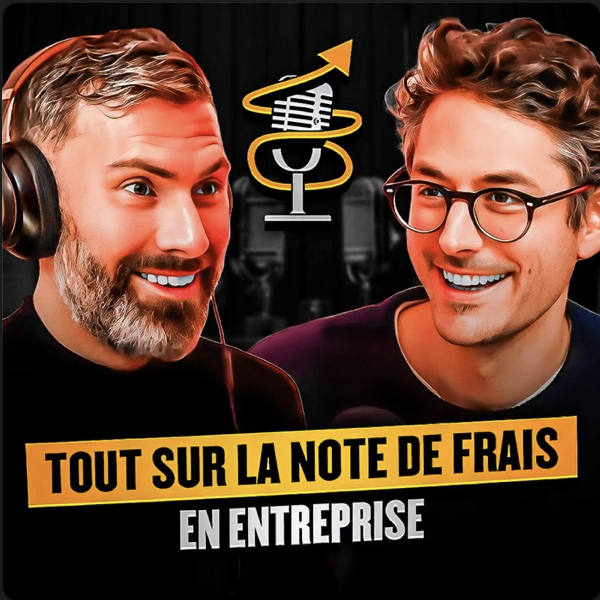
The Numbers Geeks
112 - Everything about EXPENSES in Business, Creating and Selling 3 successful companies (Pierre Queinnec CPO @ Silae)
Description of the episode
In this episode Nicolas Piatkowski welcomes Pierre, seasoned entrepreneur, for a frank discussion on the ups and downs of entrepreneurship. Discover the underside of business creation and the challenges that an entrepreneur encounters throughout his journey. - The reality of daily pressure as an entrepreneur and its impact on personal life. - Pierre's experience with selling his first business and how it influenced his career. - An overview of the challenges of managing expense reports in companies and the importance of automated tools. - Pierre's thoughts on the venture capital industry and his approach to investments. - Insights into payroll management and the use of artificial intelligence for more effective data analysis.
Manuel Letort (Beelly) & Charles Ruelle (Sezame): “Offer tools that provide security to lessors” #851
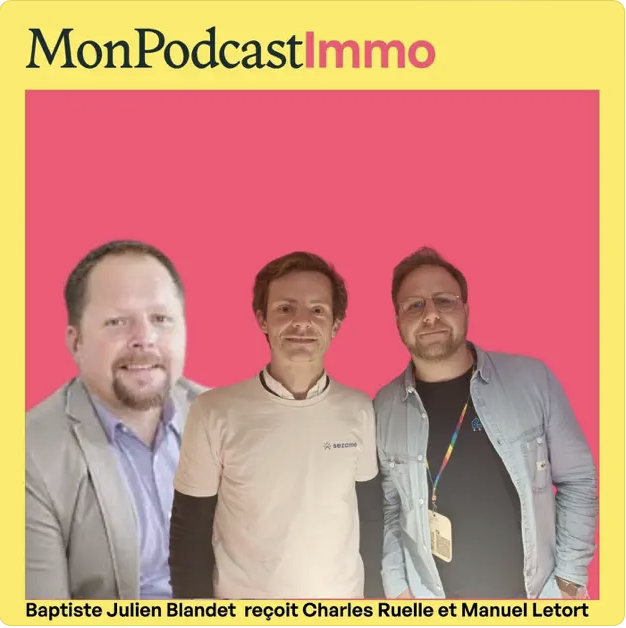
My Real Estate Podcast
Manuel Letort (Beelly) & Charles Ruelle (Sezame): “Offer tools that provide security to lessors” #851
Description of the episode
In this new episode of MonPodcastImmo, Baptiste Julien Blandet welcomes Manuel Letort, founder of the startup Beelly, and Charles Ruelle, founder of the startup Sezame to discuss PropTech in the face of the crisis in the real estate sector. “In a complicated moment, innovation takes its place even more,” believes Manuel Letort. This involves supporting real estate agents on two currently dominant topics: the solvency of tenants and the energy transition. Their common point is the owner's need for security in the face of the costs and risks generated. This podcast was recorded at Immo, the FNAIM congress, on December 4 and 5, 2023, in Paris.
#4 Innovate in tech and sustainable travel – Eric La Bonnardière – Evaneos
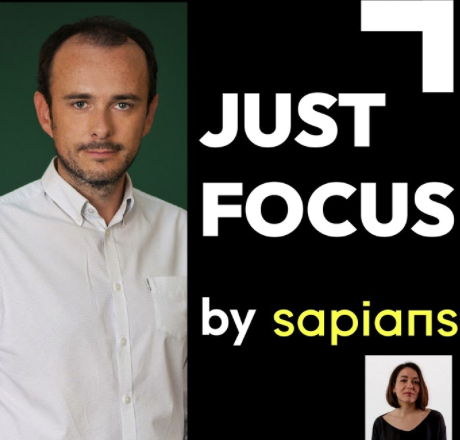
JustFocus
#4 Innovate in tech and sustainable travel - Eric La Bonnardière - Evaneos
Description of the episode
In 2009, Eric La Bonnardière wondered how to combine his love of travel and his desire to undertake. When he met Yvan Wibaux, a tech-savvy engineer, Evaneos took shape to shake up the codes of tourism and become a European leader through daring and innovation. In this very inspiring episode, you will have the opportunity to go behind the scenes of Evaneos, discover the pivotal stages of its success; but also the keys to ensuring the success of a change of direction. Sarah Tirmarche, Managing Director of Epic Foundation will explain how you can give meaning to your money, by donating strategically: to increase your impact in the world by changing life trajectories, based on your financial situation and by optimizing your taxation.
Louis Chatriot – Alma: Simplifying purchasing by reinventing payment

A hard time
Louis Chatriot - Alma: Simplify purchasing by reinventing payment
Description of the episode
Help merchants get paid in installments by their customers? This is the challenge that Louis Chatriot, founder of Alma, a payment service in installments, took on. 💸
However, if Alma is a success today, the path to get there was not always obvious.
A graduate of Polytechnique, Louis began his career as a consultant, but quickly realized that the setting did not suit him.
Without waiting, he launched with friends into an ambitious project: summarizing the internet. From this idea was born “tldr”, a site where a community of nearly 50 people summarizes articles. Despite the enthusiasm, the co-founders quickly decided to put an end to this adventure and sold their company in order to devote themselves to other projects.
Always looking for a challenge, Louis refuses an offer to work as a boss in France at Stripe. Convinced that he has more to learn from a less developed company, he joins Local Motion, an American start-up producing boxes to control the opening of cars remotely.
What follows is an adventure full of twists and turns punctuated by the installation of electronic sensors to monitor fleets of business vehicles.
After a final struggle leading to the closing of the company, Louis seeks more stability to continue his learning.
He found stability at Stripe where he became a Business operator.
After having fully invested in launching a business in Italy, Louis, who is full of energy, embarks on a completely different adventure: the creation of a new company.
He then founded Alma, a payment service in installments which simplifies purchasing and allows its users to move upmarket while purchasing without waiting.
#44 – Board, COSTRAT, COPIL: Which decision-making bodies should be set up in a startup? Feedback from Soan, with Nicolas Lemeteyer
Start to scale
#44 - Board, COSTRAT, COPIL: Which decision-making bodies should be set up in a startup? Feedback from Soan, with Nicolas Lemeteyer
Description of the episode
After a certain stage of maturity, a startup has no other choice but to imitate more traditional companies: it must set up decision-making bodies.
Both for a question of transparency and for compliance reasons.
In this episode, Nicolas shares with you the main bodies set up at Soan.
:47 An unexpected “hold-up” just two years after launching his company – Pierre-Antoine Dusoulier – Forex trader
Cash Out - behind the scenes of music exits
:47 An unexpected “hold-up” just two years after launching his company - Pierre-Antoine Dusoulier - Forex trader
Description of the episode
Who would dare enter the offices of a New York company without having an appointment and asking to speak to the boss? Who would ask the financial authorities to create a new authorization to be able to develop their company? Who would try to convince the employee of a European partner to develop the subsidiary of an American company in Denmark? All these moments have marked the whirlwind history of Cambiste, a company facilitating investment in the currency market, bought just two years after its creation by the Danish bank Saxo Bank. A challenge that she met with flying colors with her partner, Alexis, ex-CEO of Mailjet. One thing is certain, its founder, Pierre-Antoine Dusoulier, lacks neither nerve nor ideas!
How I Met My Co-founder

How I Met My Co-founder
Amine & Scott - Co-founders of Kard
Description of the episode
How I Met My Co-Founder is a unique format that allowed us to tell the story of our meeting and our unwavering desire to do something great together. We come back to our ups and downs. We also demonstrate our ambition and our realism. We were strongly advised against starting a company together, being best friends. The past few years have proven otherwise, and the future will continue to do so. Alma is above all 400 employees, 10 merchants supported, €000 billion in transaction volume each year, more than 1,5 million euros raised (not counting half a billion € in debt).
#97 Soan – Navigating chaos, difficult decisions and stress management as a CEO, with Nicolas Lemeteyer
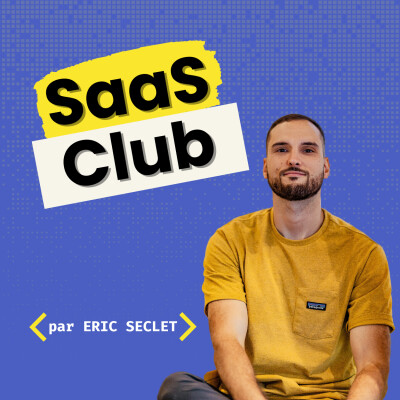
SaaS Club
#97 Soan - Navigating chaos, difficult decisions and stress management as a CEO, with Nicolas Lemeteyer
Description of the episode
You are not born CEO. We become it. How ? By making tough decisions, by falling, by growing as expectations evolve. I talk a lot about sales and marketing in the podcast but ultimately, one of the key success factors of a startup is the manager's ability to make the right decisions. Spoiler: it's not always easy. Like it or not, there is damage. In this episode, Nicolas looks back on the different phases of Soan's growth as well as his personal challenges as a manager.
